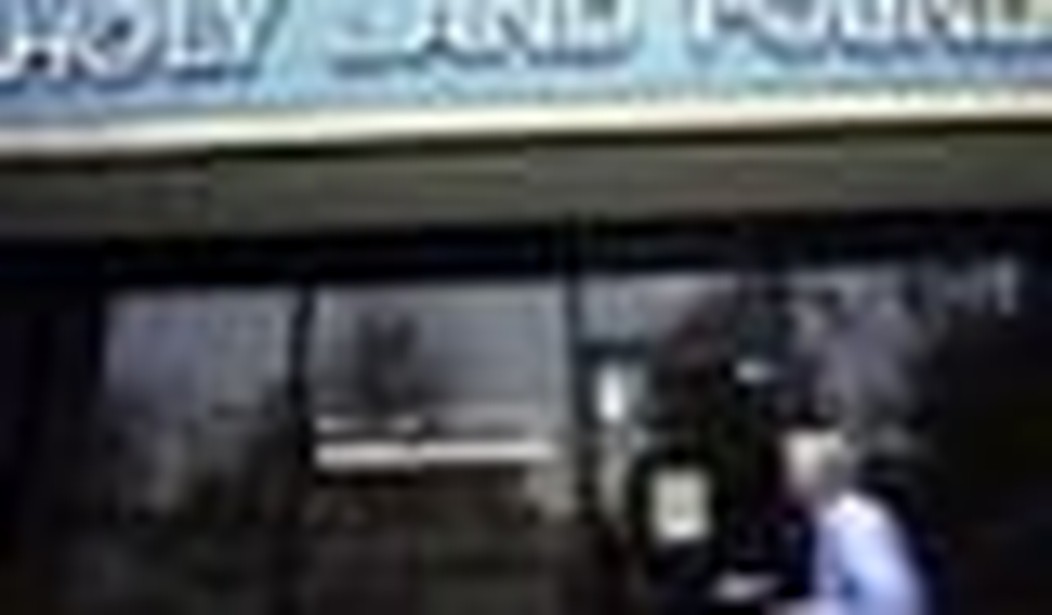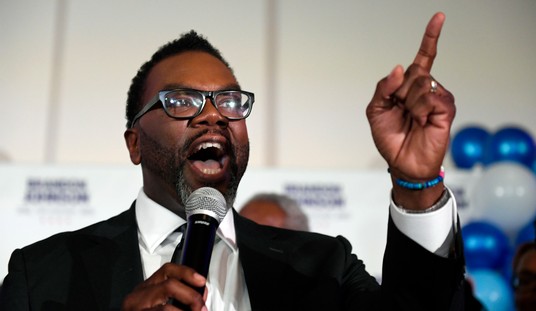In Dallas, former President George W. Bush must surely have smiled the evening of May 27 at the good word coming from the Earl Cabell Federal Building, just a few miles from his new retirement digs. Bush’s late, great war on terror had reached up from the grave to grasp an historic victory inside that courthouse.
U.S. District Judge Jorge Solis had just handed a combined 145 years in prison to five Dallas-area Palestinian Hamas operatives indicted by the Bush justice department after 9/11. Their harsh punishment was for running the Holy Land Foundation for Relief and Development, the largest covert terrorist fundraising operation in U.S. history. Set up to look like a charity, HLF was a front that funneled at least $57 million to Hamas over more than a decade.
Presaging a newfound intolerance for terrorist fundraisers of any kind on U.S. soil, Bush called a Rose Garden press conference just weeks after 9/11 to announce that he had shut down the Holy Land Foundation as a newly designated illegal terrorist organization. All told, it took eight more years and two trials (one a mistrial) to wrap it all up with this pretty bow.
FBI agents and prosecutors indulged in an alcohol-soaked celebratory bash across town that night. It had all ended in such rich just desserts for the bad guys.
But lost in the post-production plaudits is a nagging loose end: two of the seven original defendants got away with it.
At least so far. Haithem Maghawri and Akram Mishal, both naturalized U.S. citizens, remain international fugitives from American justice. And it appears that no one is particularly interested in hunting them down or even talking about it.
Maghawri and Mishal were early HLF founders and high-level charity insiders, according to the indictment. The Lebanon-born Maghawri served as HLF executive director. Mishal, a cousin of supreme Hamas leader Khalid Mishal in Syria, served as the HLF’s grants and projects director.
Perhaps sensing trouble, Maghawri and Mishal left the country just ahead of the July 2004 indictment. Wives and children disappeared too, abandoning Dallas houses and friends.
Oddly, their disappearances or prospects for capture are almost never publicly discussed.
As a reporter who for years covered the HLF investigation and later the indictment phase, I got to wondering about the seemingly forgotten fugitives. Are they really not on anyone’s radar? What do the feds know about their whereabouts? What, if anything, is being done to locate and nab them? Are they alive or dead?
I called some of my old federal contacts who spent years working on the case, looking for answers. Granted, these two fugitives aren’t the bombing types, as far as anyone knows. But they’re accused of playing important supporting roles that made it ultimately possible for Hamas suicide bombers to kill Israelis and also no small number of Americans visiting Israel.
As long as they’re at large, the Holy Land Foundation matter will remain an open book for the Obama administration now. If these two fugitives ever are caught, there will have to be yet another expensive and emotionally taxing Holy Land Foundation trial.
Here’s what I learned after my round of calls:
The last anyone heard, Mishal was living in the protective custody of Syria, which plays host to cousin Khalid Mishal and all of Hamas’ other top leaders. Among these is another former Dallas resident who helped set up the Holy Land Foundation, Musa Abu Marzook.
As for Maghawari, he is believed to be living in either Lebanon or Gaza, or moves between them.
There is no known currently active American effort to hunt them down. The CIA or the intelligence branch of the FBI would be the agencies involved. These American agencies would no doubt have to work in concert with foreign intelligence services, like maybe Mossad, to track and corner either man for a capture. But no one I spoke to was aware of anything fresh going on. If anything, the plan is to sit back and hope.
A few years back, red notices — the equivalents of arrest warrants — were filed for Mishal and Maghawri with Interpol, the International Criminal Police Organization.
But all this means is that Interpol’s 187 participating member law enforcement agencies keep the fugitives’ names on travel lists. They’d be captured and extradited only if either man makes the mistake of trying to travel through the wrong friendly country and gets noticed. Until then, they’re probably relatively safe staying in lands that are hostile to the U.S.:
“This is one of those things where the most efficient thing is to assume they’re going to want to travel some day,” said Jim Jacks, the lead HLF prosecutor who is now Acting U.S. Attorney for the Northern District of Texas. “One of these days they’ll enter the wrong airport.”
One federal agent still on the government payroll explained that U.S. interest in finding Mishal and Maghawri hasn’t always been passive. A few years ago, American authorities heard one of the fugitives was visiting a “semi-friendly” Arab country. The U.S. tried to work out a capture with the locals but things didn’t work out, the agent told me, purposefully offering few details. Also at one time, the American authorities reached out to the Syrians — dubbed by Bush by that time as part of an international “axis of evil” — about maybe working something out for the handover of Akram Misal, the agent said. That obviously didn’t bear fruit.
Former Supervisory Special Agent Tino Perez left the bureau four years ago but spent years working the HLF investigation. No longer in the know, or in the bureau, Perez was blunt in his speculative assessment:
If they catch them, it’ll probably be by accident. What’s the severity of their crimes? If life and limb were at stake, there would be a CIA operation abroad or the FBI would coordinate. But something as benign as fund raising — I don’t mean to belittle that — but fund raising is not a threat per se. They’re probably on the B list, if that high.
One current FBI agent offered this assurance:
As long as they’re out there, they’re going to have to watch their backs. They’re good for 15-65 (year prison terms). They’re not going to be forgotten, at least not while some of us are still employed.
Perhaps no one followed the HLF investigation and trials more closely than Mark Briskman, head of the Dallas branch of the Anti-Defamation League. When I called Briskman, he admitted, “I’ve not even asked the question, quite candidly. But it’s a good question.”
He believes the nation never hears about Mishal and Maghawri because:
The media hasn’t paid attention to them. That would be important, to make people understand that there are still two fugitives. As successful as the government has been with of five of the seven, the work is still undone. Clearly if they’re not captured they’ll continue to do their work in supporting the terrorist organization Hamas. I don’t think the final chapter is over. That’s my clear belief.









Join the conversation as a VIP Member